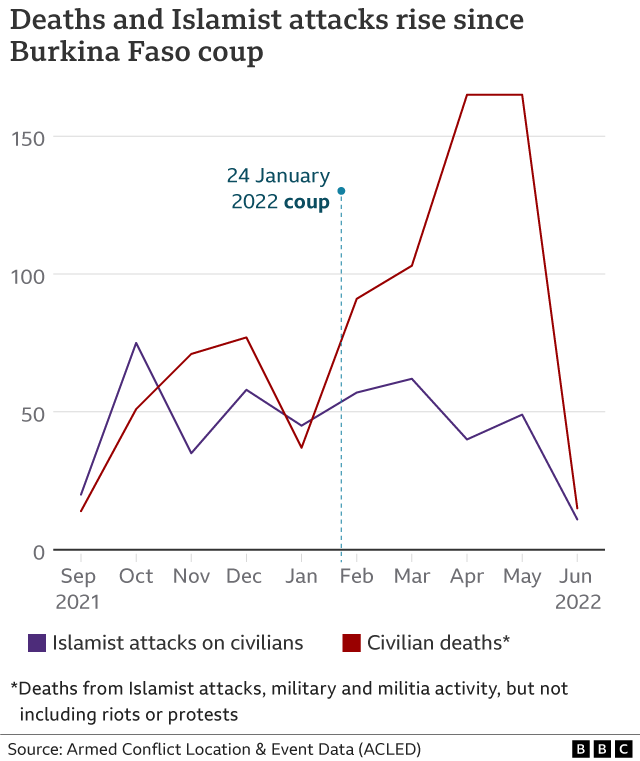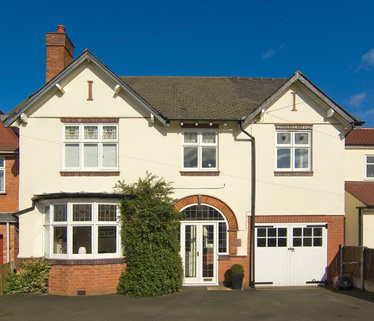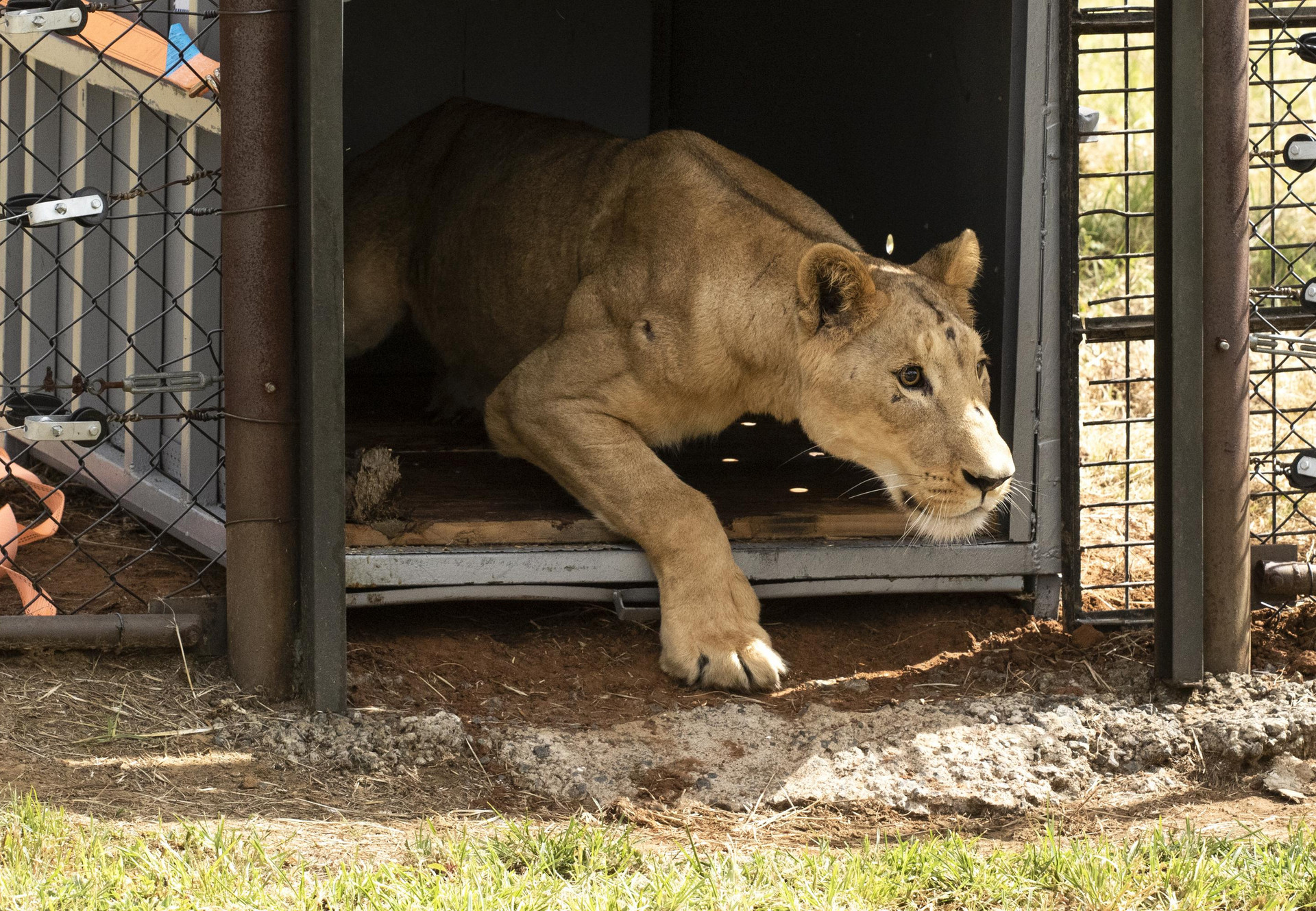
Mali and Burkina Faso: Did the coups halt jihadist attacks?
Widespread anger at chronic insecurity in the West African countries of Mali and Burkina Faso paved the way for military men to kick out failing governments over the past two years.
"There's no more room for mistakes," said Mali's coup leader as he seized power in August 2020.
"We have more than what it takes to win this war," echoed Burkina Faso's new man in charge earlier this year.
So are citizens now more safe?
The short answer is, no.
In both countries, attacks by Islamist militants on civilians have only increased. The same is true of civilian deaths - more ordinary people are being killed by Islamists, militants and the military.

"The tallies for each year are increasing year by year," says Héni Nsaibia, a senior researcher covering West Africa's Sahel region for the Armed Conflict Location and Event Data project (Acled).
Data supplied to the BBC by Acled in June compares the 661 days before and after Mali's coup in August 2020, and the 138 days before and after Burkina Faso's coup in January 2022.
To gather this data Acled relies on a network of "informants and professionals" as well as media reports, but Mr Nsaibia says tracking violence is particularly hard in the Sahel because of "Russian-driven disinformation, and the states themselves often feed the media with fake reports to make them appear more successful than they really are".
Russia, which backs Mali's junta, has consistently denied such allegations in the past. The Mali and Burkina Faso governments have not responded to BBC requests for comment. Read More...







